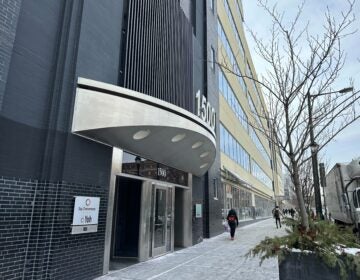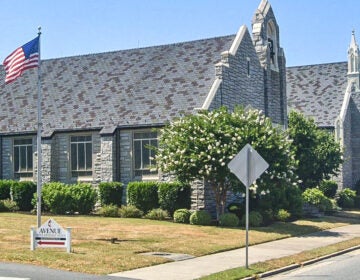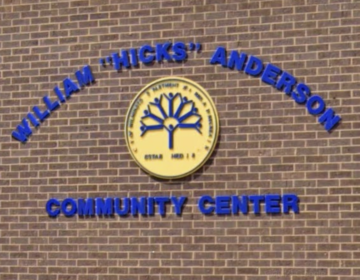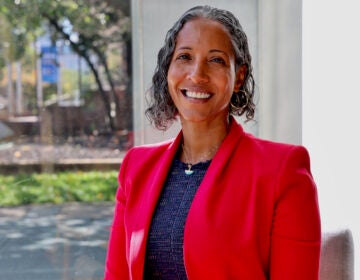Philadelphia microlender that helps entrepreneurs hires new executive director
After three decades at the helm of the local microlender, its founder is stepping back to handle the strategic vision after hiring a new leader.
Listen 1:00-
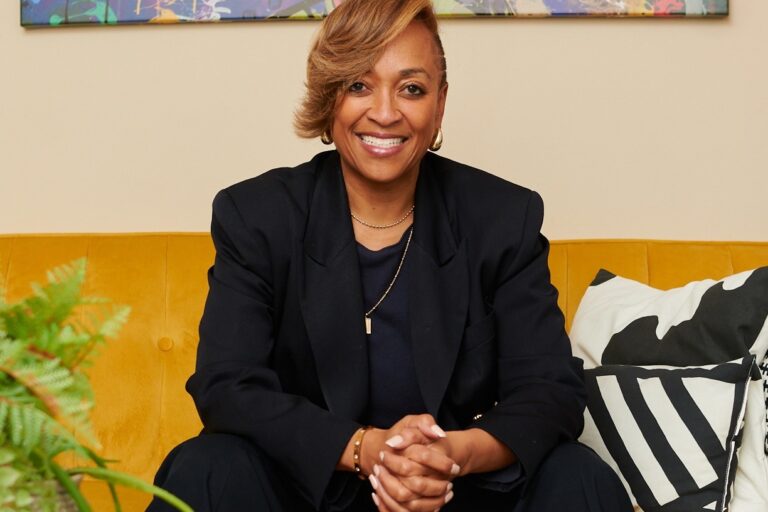
Lola Harper is the new executive director of the Philadelphia-based microlender Women's Opportunities Resource Center. (Courtesy of the Womens Opportunities Resource Center)
-
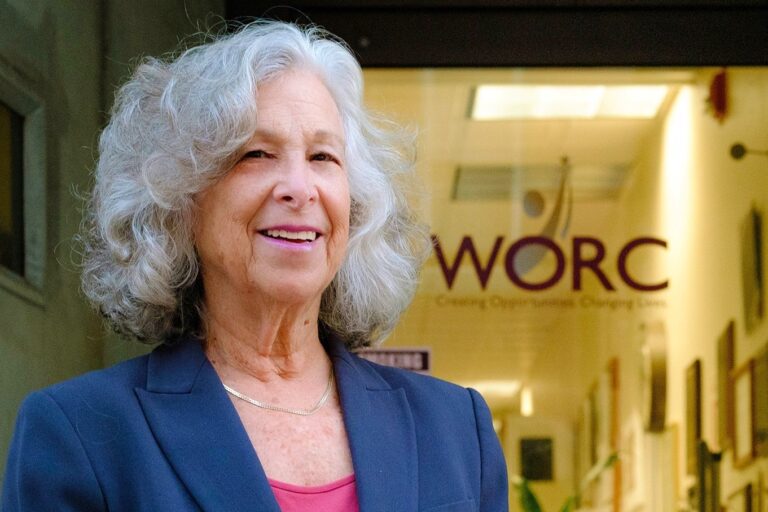
Lynne Cutler is the founder of the Women's Opportunities Resource Center and is stepping into the role as the executive board chair of the Philadelphia nonprofit.(Courtesy of the Womens Opportunities Resource Center)
From Philly and the Pa. suburbs to South Jersey and Delaware, what would you like WHYY News to cover? Let us know!
In the 1970s, Lynne Cutler remembers how few options there were for low-income mothers looking for work in the Philadelphia job market.
“We saw that when we were doing regular job training programs that they may not have had the education [needed for many jobs] and that entrepreneurship was a pathway,” Cutler said.
So she left the Women’s Association for Women’s Alternatives, now known as PathWays PA, and created a nonprofit that supports entrepreneurs in 1993.
That nonprofit is the Women’s Opportunities Resource Center, which has since underwritten 1,147 loans totaling $11.3 million over the past three decades. The nonprofit serves the city of Philadelphia residents but also clients in Bucks, Chester, Delaware and Montgomery counties.
“When you invest in women, they invest in their kids, they give back to the community, they become role models,” Cutler said. “Also when you invest in small businesses, they tend to hire locally.”
Micro-lenders are often the first resource for entrepreneurs, offering initial loans as small as $150 to help build their credit. From there, businesses can access loans up to $50,000 to support growth, and eventually obtain commercial real estate financing of up to $350,000 to help clients secure a permanent location. But the average loan size is $6,500 and the interest rate is roughly 8%.
Now after 32 years at the helm, Cutler said that it’s time for her to stand back and focus on strategy. She tapped Iola Harper as the next executive director who begins in that role on April 1.
Harper worked as a trainer for the Women’s Opportunities Resource Center for 15 years until 2008.
“I remember being an [entrepreneurship] trainer and I can say there’s nothing better than walking into a store or through a farmer’s market and have somebody say, hey Iola, you were my instructor and you helped me,” Harper said.
While the job prospects for women have improved over the years, the minimum wage in Pennsylvania remains $7.25 an hour, which means for those with limited education the path to create generational wealth is difficult.
“Having your own business is a direct path to generational wealth because you control what you make, what you sell,” Harper said. “That is the root of what I do, serving women and helping lift them up and helping to provide them with real assets that are going to change their lives.”
During her career, Harper has served as an executive vice president for The Enterprise Center and the city of Philadelphia’s deputy commerce director for entrepreneurship and economic opportunity during the Jim Kenney administration.
The micro-lender nonprofit has trained more than 4,200 individuals who are low-income or underemployed on how to start businesses. One goal is to create a women’s business center in the city.
The micro-lender services are “critically needed because most agencies are targeting the bigger of the small businesses. But we are targeting businesses that are trying to get off the ground,” Cutler said.
The group’s goal is to then follow small business owners along their journey to help them keep growing, helping families like the Alazzazys, who immigrated to Philadelphia about a decade ago from Egypt.
The family owns and operates Cilantro Mediterranean Cuisine in Queen Village. Mohamed runs it in collaboration with his wife, Dalia Soliman, as the chef. Their sons, Ryad and Marawan, pitch in too. Back in Cairo, Soliman once managed a catering arm of her mother’s restaurant.
She was connected with the Women’s Opportunities Resource Center soon after arriving in the United States, which has a program to help recent immigrants become self-sufficient.
They began saving money using a matching grant Family Savings Account Program through the nonprofit, which has helped more than 1,900 families save $3.8 million, whose savings were matched with $4.3 million of grants.
After years of hard work and culinary school, the couple opened the restaurant and have since gotten a real estate loan through the nonprofit to build not just income, but also assets, Cutler said.
“Now they own the building,” Cutler said. “And now her son’s graduating from [The University of Pennsylvania]. So you can transform people’s lives by working with them.”
One reason why financial institutions shy away from approving dozens of smaller loans is that the cost to underwrite a loan is the same, whether it’s for $1,000 or $100,000.
“Sometimes, it’s even more work when you’re with an early stage [company] because you’re working with them to get their financials in order,” Cutler said.
Often the organization will pair together loans and grants to help entrepreneurs meet their financial capital goals.
“That’s a real opportunity for people who might not qualify for a [bigger] loan. Let’s say it’s a $20,000 need and they can only afford to pay back $10,000. We will provide a $10,000 grant if that will allow them to get that $20,000 and that’s viable. So we’re really trying to address some of the equity issues and make sure individuals have opportunity,” she said.
But this year, not only is the funding that helps support the nonprofit’s refugee entrepreneurship program but its micro-loans to women, minorities and refugees could be at risk under President Donald Trump’s administration. Nearly one-third of their clients are new Americans so the lack of funding for refugee resettlement programs could mean resources dry up in Philadelphia too.
During the last Trump administration, some programs such as regional innovation clusters, the micro-enterpreneur grants and the Growth Accelerator Fund were eliminated from the federal budget, to the tune of $12 million in savings.
Under the Biden-Harris administration, there was both a significant investment in Black and Hispanic entrepreneurs, but also a record number of small businesses were formed.
As part of its larger strategic plan, the founder expects to diversify its funding stream so that 50% of its revenue will come from earned sources such as interest payments and private donors.
For example, they plan to start a $20 million loan fund and increase annual lending to $5 million, in part to combat the reality of the landscape where affirmative action programs are under attack.
“I’m going to do board development, policy, strategy, fundraising and some special projects,” she said. “Then you need all hands on deck, especially with this change in administration.”

Get daily updates from WHYY News!
WHYY is your source for fact-based, in-depth journalism and information. As a nonprofit organization, we rely on financial support from readers like you. Please give today.


